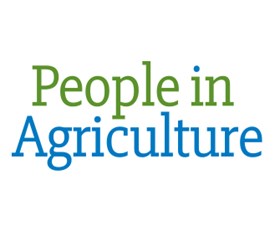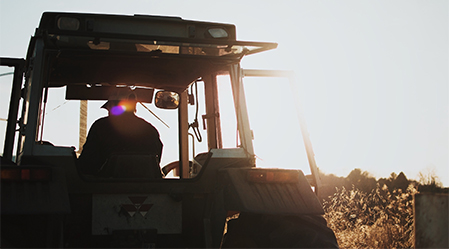At Braelands a passion for farming is in the blood
1/11/2017
Lou Abey is a fourth-generation farmer who has been single-handedly running her family’s beef and lamb farm, operating a meat business while taking care of her two children, Penelope and Arthur.
Lou Abey is a fourth-generation farmer who has been single-handedly running her family’s beef and lamb farm, operating a meat business while taking care of her two children, Penelope and Arthur.According to Lou, despite the challenges, she loves her work. Their farm in Pentlands Hills, near Myrniong, had been in their family since the 1870’s. And they had been running beef cattle for years.
She left their farm to complete an agriculture science degree and also worked across NSW and Queensland but returned to home to focus entirely on their farm.
Their farm comprises the 340ha home block and 80ha leased in a family partnership and Lou is responsible for pasture production to livestock breeding through the marketing and delivering beef and lamb cuts under the Braelands meat brand. Their farm is also home to 125 predominantly Hereford cows joined to Angus or Hereford bulls and a flock of lambs brought in and fattened.
Lou runs a split calving program to ensure a year-round supply of meat, wherein the cows calve in autumn with about 45 calving spring. Bulls are sourced from Lawsons Angus stud at Yea and Injemira Poll Hereford stud near Wagga Wagga, in NSW.
Bulls are selected to produce moderately framed calves that finish well on grass as they aim to process cattle at 18-24 months at a 520-560kg live weight.
According to Lou, they keep the better end of the females that have the right type, temperament and get in the calf and hit the proper weight. And if they are still in good working order, cows could be retained for 8 to 10 years.
Native grasses with some areas improved after being sown down to oats and summer crop with a perennial mix of Phalaris, cocksfoot and clover are Lou’s pasture program. For supplementary feeds, hay is grown, and crops are sown that adhere to low-stress stock handling ideals.
Lou needs the calves to get used to human interactions which is why she starts with yard weaning.
In 2009, Lou processed their meat when the farm was feeling the pinch of beef prices about the half the present rate. She first started working full time and was doing deliveries after work, and got to the point where they get one steer, two or even ten lambs a week consistently.
Lou decided to sell orders online because she finds it difficult to the farmer’s market. Customers can choose from specific cuts up to whole lambs or beef. The customers came from Melbourne, extending to Frankston, Geelong, Ballarat and the Macedon Ranges.
Lou said she wants to expand the brand, but having to juggle the business and the kids together, she doesn’t have enough time, so she’s thinking of moving Community Supported Agriculture model, where other farmers supply the brand and get more involved in the business.
For more visit: braelandsbeef.com.au





